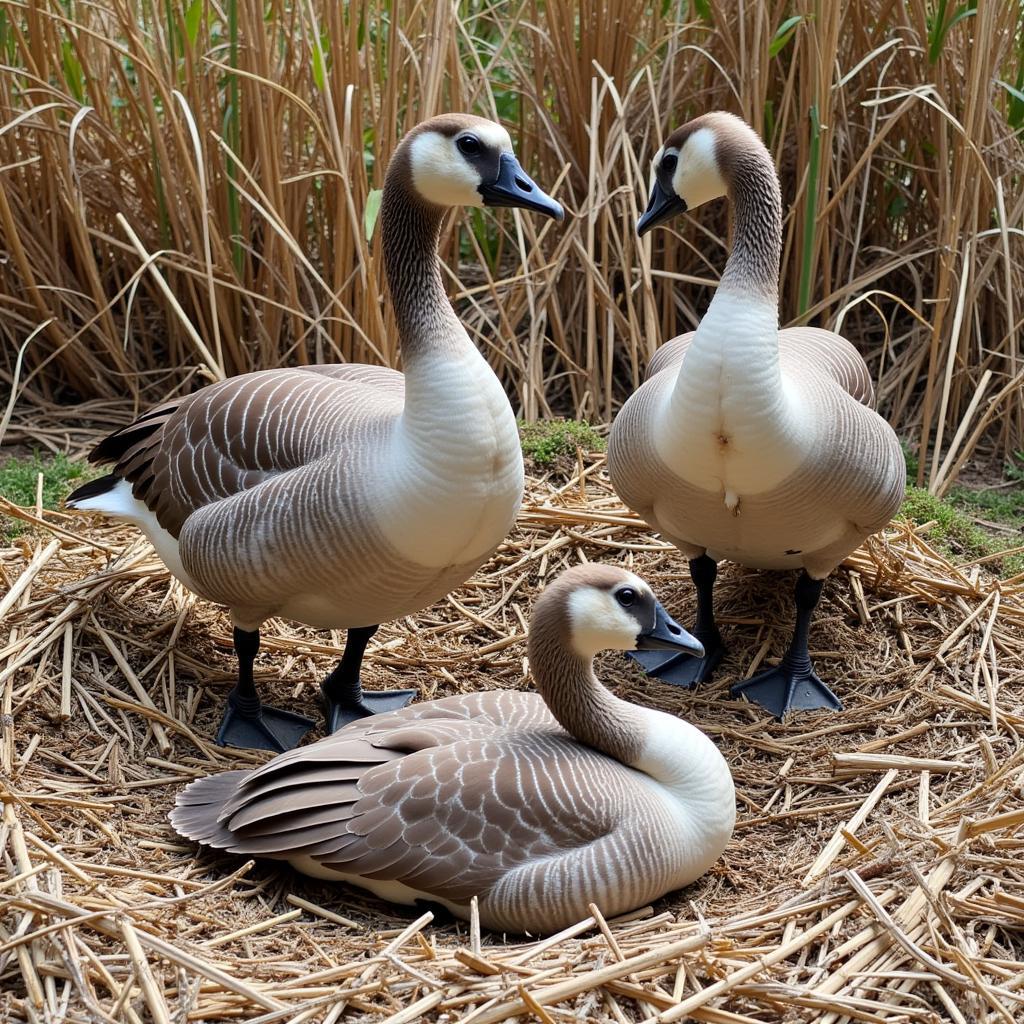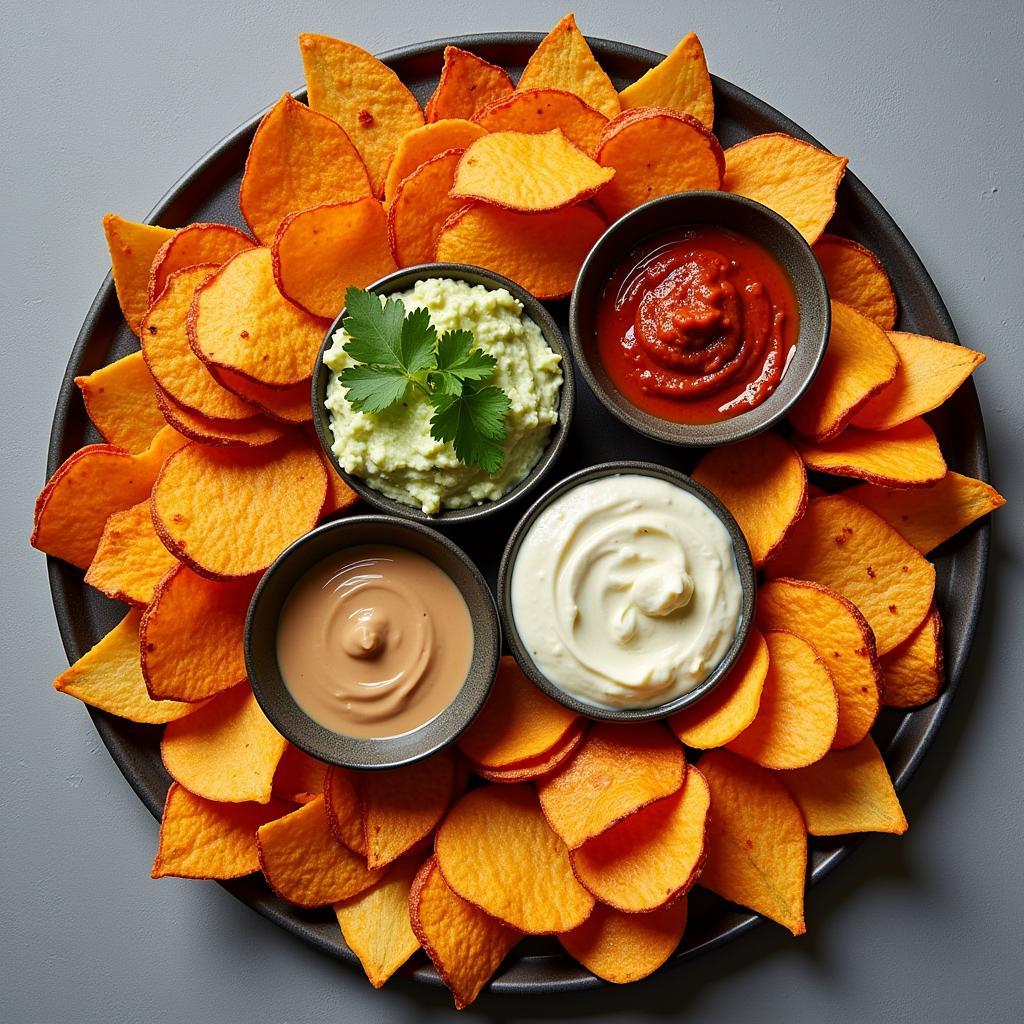Exploring the African Goose: A Comprehensive Guide
The African Goose, a striking breed with its unique markings and Roman nose, has captivated poultry enthusiasts for centuries. This article delves into the fascinating world of the African goose, exploring its origins, characteristics, care, and more.
Origins and History of the African Goose
Believed to have descended from the Chinese swan goose, the African goose’s precise origins are shrouded in some mystery. While its name suggests an African heritage, it’s more likely that the breed developed in Europe or Asia, with the name possibly arising from its resemblance to certain African waterfowl. The African goose was introduced to Western countries several centuries ago and has become a popular choice for both farm and ornamental purposes. Learn more about their presence in the African goose UK.
Domesticated African geese are known for their docile nature and impressive size, making them excellent additions to farms and homesteads. They are also valued for their striking appearance, adding an elegant touch to any waterfowl collection.
Distinctive Features of the African Goose
The most prominent feature of the African goose is its large knob, also known as a basal knob, at the base of its bill. This characteristic sets it apart from other goose breeds and contributes to its regal appearance. The knob can vary in size and shape between individuals and is usually more pronounced in males. The African goose also possesses a long, graceful neck and a rounded body, further enhancing its swan-like elegance. Their plumage is typically brown or gray, often with white markings on the chest and belly. Looking at African goose baby pictures will show you how adorable they are.
Caring for African Geese
African geese are relatively hardy birds and adapt well to various climates. They require access to fresh water for swimming and foraging, as well as a spacious area to roam and graze. Their diet primarily consists of grasses, weeds, and grains. Supplementation with commercial waterfowl feed can ensure they receive a balanced diet, especially during breeding season. Understanding their natural African goose range can inform best practices for providing an adequate living space.
Like all waterfowl, African geese benefit from a clean and dry living environment to prevent disease. Regular cleaning of their enclosure and providing ample bedding material are essential for maintaining their health and well-being.
Breeding African Geese
African geese are known to be good breeders, with females laying an average of 20-50 eggs per year. They are typically protective and attentive parents. Understanding how to determine African goose male or female is essential for successful breeding.
 African goose pair nesting in a protected area
African goose pair nesting in a protected area
Incubation takes approximately 28-35 days, and goslings are relatively independent soon after hatching. Providing a safe and secure environment for the goslings is crucial for their survival and growth.
The African Goose Call and Communication
African geese are vocal birds and use a variety of calls to communicate with each other. Their calls can range from soft honks to loud, resonant cries, often used to signal alarm or attract attention. You can find examples of the African goose call online. These calls play an important role in maintaining social cohesion within the flock and alerting others to potential threats.
Conclusion: Appreciating the African Goose
The African goose, with its distinctive appearance and gentle temperament, is a truly remarkable bird. Whether admired for its ornamental value or appreciated for its agricultural contributions, the African goose continues to fascinate and delight those who encounter it. Understanding its unique characteristics and care requirements allows us to fully appreciate this magnificent breed.
FAQs about African Geese
- What is the average lifespan of an African goose? They typically live for 10-20 years.
- Are African geese good for meat production? Yes, they are considered a good meat bird.
- Are African geese noisy? They can be vocal, especially when alarmed or excited.
- How much space do African geese need? They require ample space to roam and graze.
- What is the purpose of the knob on an African goose’s bill? The exact purpose is unknown, but it’s likely related to courtship and display.
- Are African geese aggressive? Generally, they are docile, but males can be territorial during breeding season.
- What are the common health problems in African geese? They can be susceptible to respiratory infections and parasites.
Exploring Further
For more information on related topics, consider exploring other articles on our website about various goose breeds, waterfowl care, and poultry farming practices.
Need assistance? Contact us 24/7: Phone: +255768904061, Email: kaka.mag@gmail.com, or visit us at Mbarali DC Mawindi, Kangaga, Tanzania.

